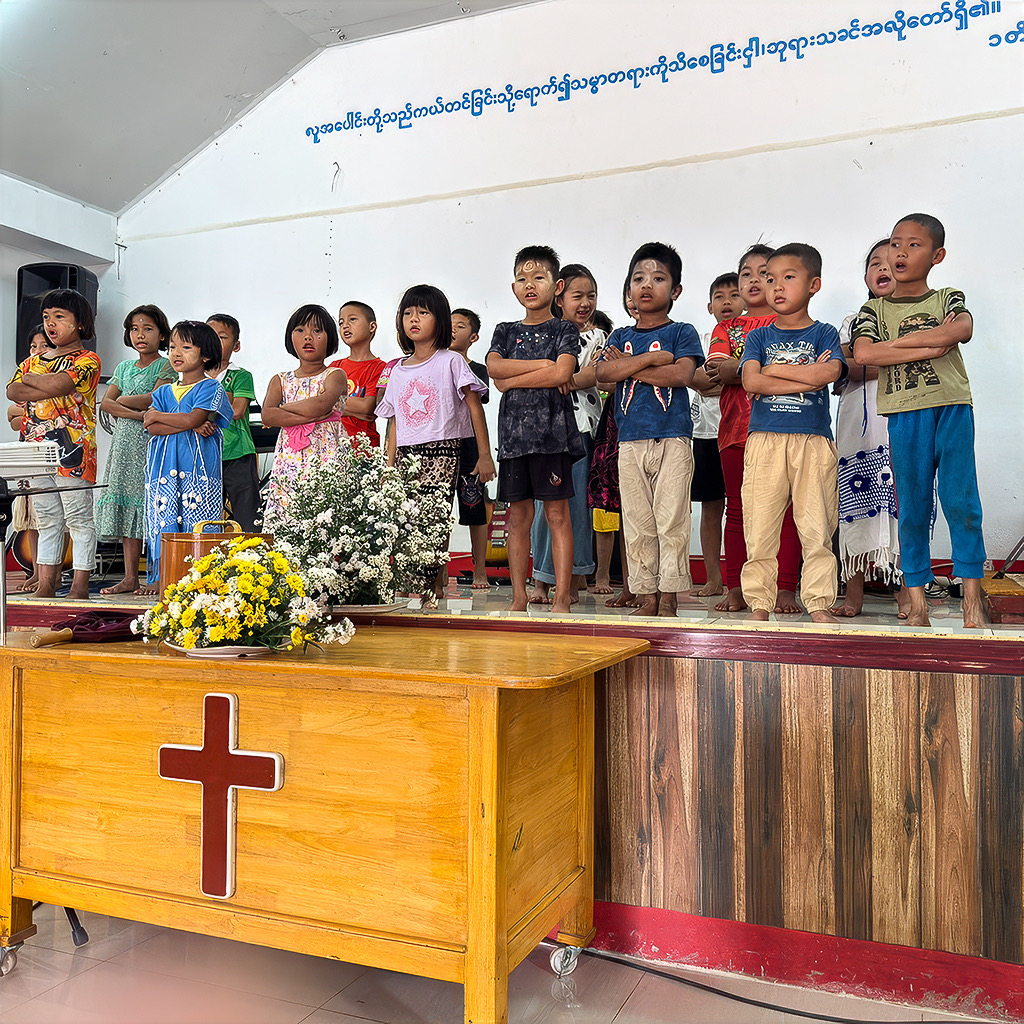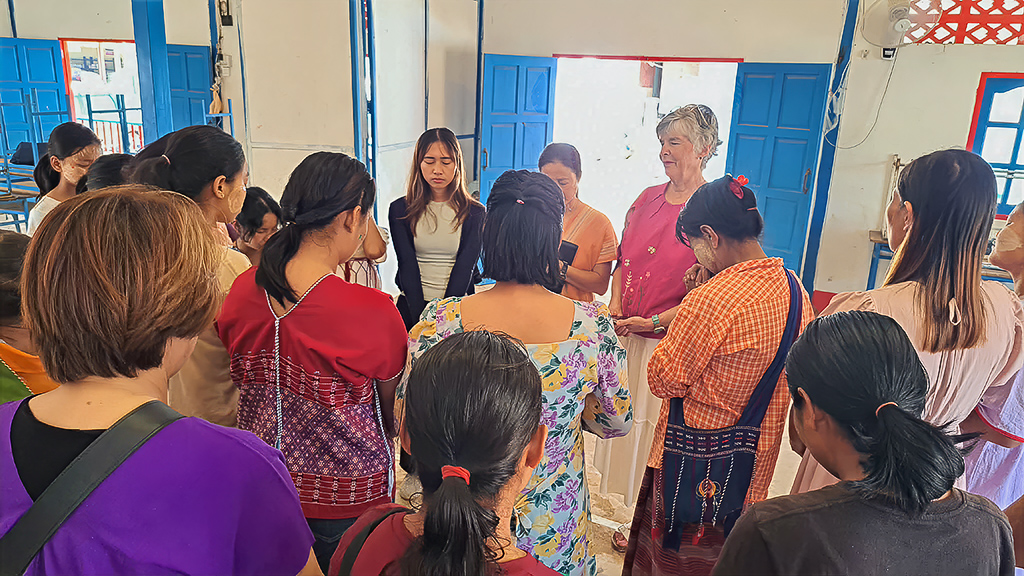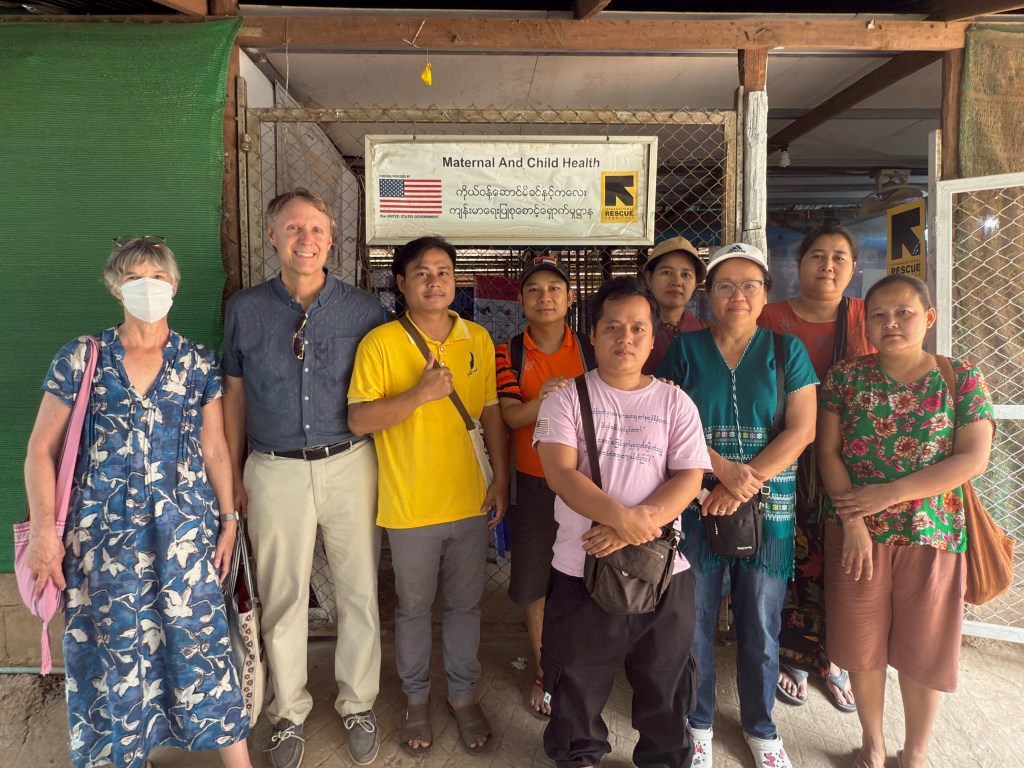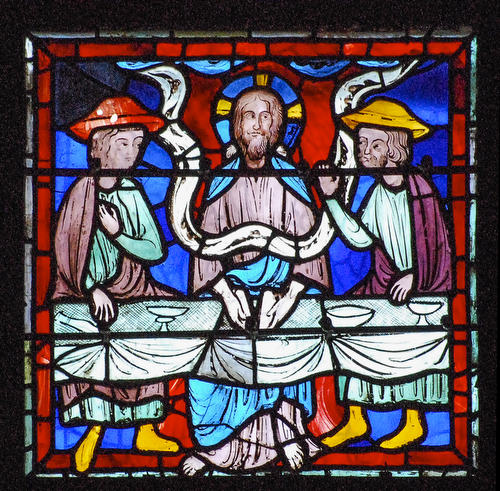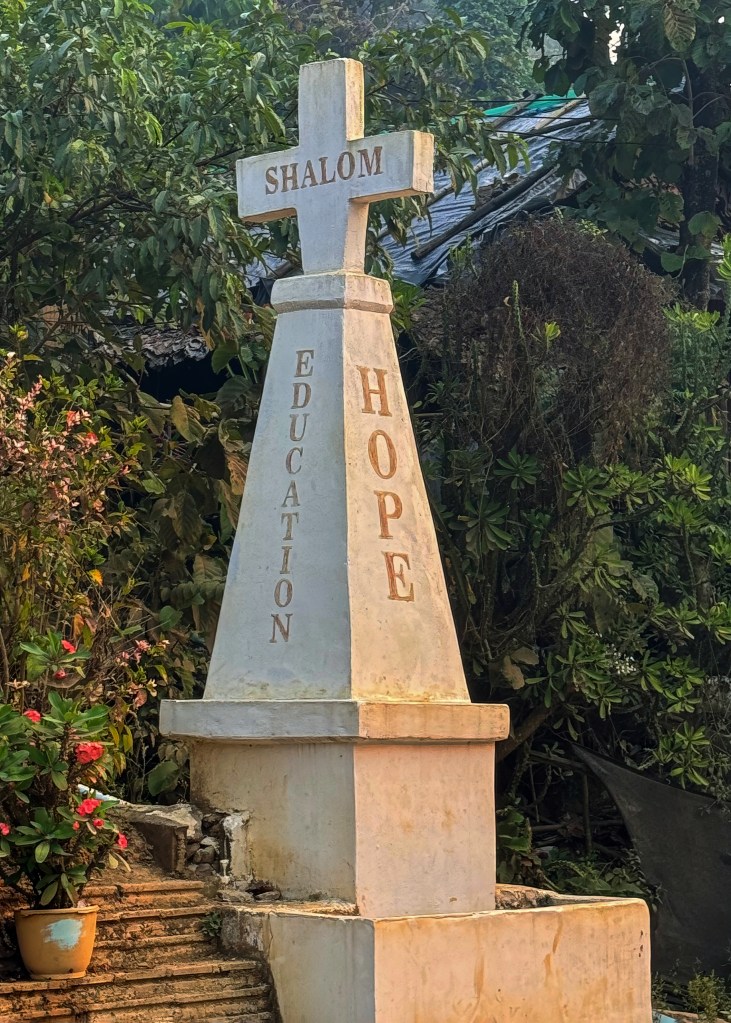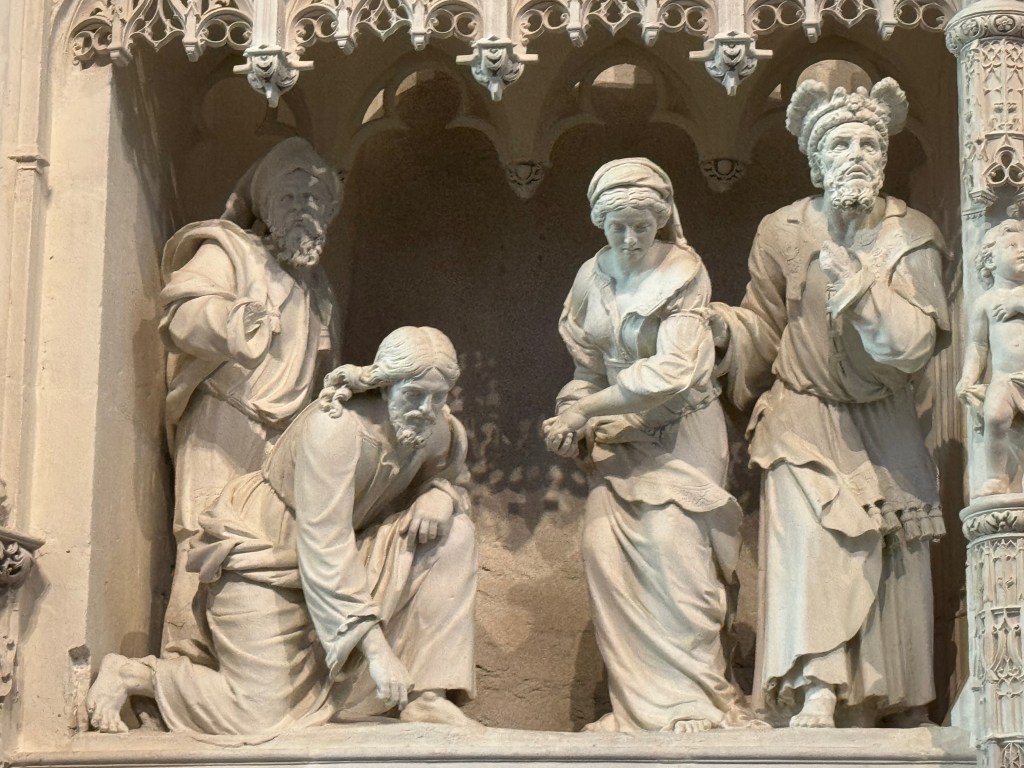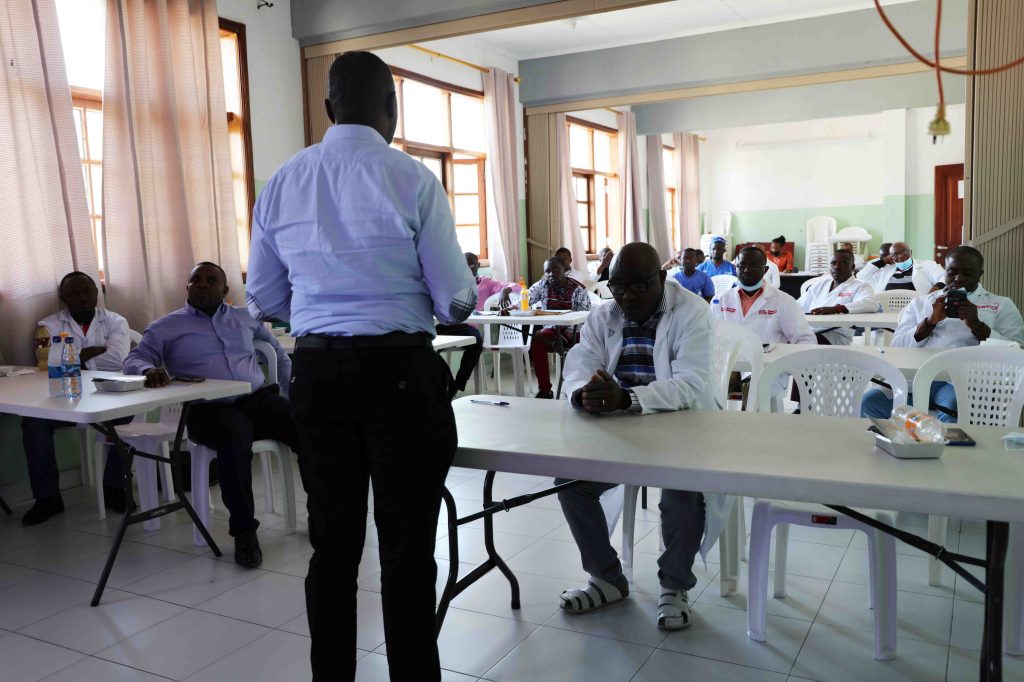Charge to Kawthoolei Hope Theological Seminary graduates (March 30, 2025)
Graduates, congratulations! You’ve successfully completed your degree. And we’re here today to celebrate your great accomplishment. At the same time, as you probably know, graduation ceremonies are also called commencements. And that’s because, we are not only celebrating what you’ve achieved. We’re also marking the beginning of a new chapter in your life.
After graduation, you are going to move from a time of academic learning to a new period for productive service in the Kingdom of God. With your education, you are now better prepared to move into positions of leadership, service or ministry—whether it is back in Kawthoolei and Burma or here in Thailand or somewhere else in the world. Wherever you go, you can be sure that you have important things to do and valuable contributions to make.
So, with your future in mind, I’m going to ask you three questions to help you go forward into this next chapter: Who are you? Who do you want to become? And how are you going to become that person?
Let’s take each of these three questions one at a time.
- Who are you?
All your lives, someone else has told you who you are. Your parents, your friends, the church, your teachers, and even your enemies. You’re a son or daughter. You’re Karen, Karenni, Chin, or some other ethnic group from Burma. All this is true, but who are you at the core of your being? Who are you in God’s eyes?
One of the things I’ve struggled with in my life is guilt and shame. Some of it is my own fault. I feel guilty about things I have done that I shouldn’t have done. Like sinning, disobeying God, hurting other people, and things like that. I also feel guilty about things I should have done but didn’t do. Like reaching out to someone who needed my help, or being more generous or sacrificial with my time and resources. I know nobody is perfect, but sometimes it’s hard to accept that I fall so short of the man, the husband, the father, the friend, the neighbor, that God wants me to be.
Shame is even more painful. According to psychologists, guilt is feeling bad about something I’ve done wrong. Shame is feeling like I am wrong. Whatever is wrong with me is unacceptable, and maybe unforgiveable. And when shame gets too intense, it becomes toxic. It poisons our minds. And the result is either, we just give up trying to be good. Or, we try and try and try to be as good as possible, or to accomplish as much as possible, or to impress other people as much as possible, trying to make ourselves feel better.
The only problem with trying to overcome shame by trying so hard is that it doesn’t work. Other people might be fooled, but we’re not fooled. We think we know the truth about ourselves: We’re bad, and there’s no hope for us. That’s what they call toxic shame.
Thank God, one day I attended a seminar on shame that set me free. The teacher explained that there is only one cure for toxic shame and that is the love and grace of God. I had to believe that God saw everything that was wrong with me, including all my sin, failures, and shortcomings. But he still loved me. Through Jesus, he forgave me. And what he wanted more than anything else was for me to believe him and to love him in return.
In that moment, I suddenly remembered the day my first son was born. I shared this story with some of you during the seminar last week. The nurse put my newborn son into my arms and without thinking I heard myself say to him, “No matter what you do in your life, I will always love you.” Remembering that moment in the middle of the seminar made me think, “If I could feel this much love for my son, how much more could my Creator love me!”
Two years later, my brother-in-law came up to me one day with a very strange question. He asked me, “Tim, who are you?” At first, I was taken aback. How am I supposed to answer a question like that? He knew me very well. I’m a man, a husband, a father, a minister, a teacher, an American. What kind of answer was he looking for? I said a quick silent prayer, because I knew this question was very important to him for some reason, and I wanted God’s help. Then, suddenly the answer came to me. Who am I? I am loved. That’s who I am.
2. My second question, as you enter this new chapter in your life, is who do you want to become?
Some of you already have plans and commitments. Some of you are still uncertain about what you’re going to do after graduation and how God is calling you. But apart from whatever role you’re going to play in your family, church, school, or community, who does God want you to become?
According to the Apostle Paul, in Ephesians 2:10, if you have put your faith in God’s grace, as we have been talking about tonight, you are now “God’s workmanship, created in Christ Jesus, to do good works, which God prepared in advance for you to do.” In other words, the person God wants you to become is the person God is already creating you to be.
In his letter to the Galatians, Paul said that God’s calling is not to try to impress other people with your religiosity, accomplishments, status, cleverness, skills, or anything else like that. Rather, he said, in effect, none of that matters, because “what counts is a new creation” (Gal. 6:15b). What he meant was that through Christ’s presence in your heart and mind, you now can become more and more like him (Rom 8:29). Through the filling and leading of the Holy Spirit, you can discern all the good work that God intends for you to do. In other words, the person God wants you to become is not more full of yourself. It’s to become more full of Jesus.
It’s that simple. I didn’t easy, I just said simple. God’s vision for you is to become more and more like Jesus Christ in your heart, mind, and behavior—that’s what makes you a new creation. And with Christ at the center of your life, you will draw on your education, intelligence, skills, personality, and opportunities to do all the good works that intends for you to do.
3. This leads us to our third question: How are you going to become this person—the new Christ-like creation that God has called you to become?
By now, you know that it is not easy to think and act like Jesus. Every one of us has to deal with temptations, human weakness, forces of evil, and so many other limitations and challenges. Sometimes, we feel confused and unsure of how to best serve God’s purposes.
Fortunately, there is an answer. And we find it in Paul’s letter to the Philippians.
In chapter one he calls the Philippian Christians “partners together with him in the Gospel” (1:5). As believers in Jesus Christ, loved by God, and saved from their sins, the Philippians devoted their lives to serving Christ and the Gospel. However, Paul, the founder of their church, had been arrested. He was being persecuted, and now they were facing persecution. They were scared and intimidated by their enemies. They started fighting among themselves.
So, the Apostle Paul writes them a letter both to remind them who they were and who God was calling them to be. And along the way, he explains how they can faithfully live out their calling.
He says many things, but I want to focus on the most important reason that they should have confidence going forward with their faith and calling. In chapter one he simply says, “He who began a good work in you is faithful, he will complete it.” (Phil. 1:6) Then, in the next chapter, he wrote, “Work out your salvation with fear and trembling, for it is God who works in you to will and to do what pleases Him” (Phil 2:13).
The answer to our third question, how can we hope to become the people God has called us to be is simply this: God is the one who will do it.
Your job is to keep submitting yourself to God and to keep listening for the leading and guidance of the Holy Spirit. You must cooperate with the Spirit and work as hard as you can to do the good works God puts before you to do. But God is the one who can transform your heart and mind and make you more and more like Jesus. The Holy Spirit is the one who enables you to become the person God is calling you to be.
Looking back on my life, I can see that I never could have planned all the things that I’ve done or learned or accomplished on my own. I had many more weaknesses and limitations than I realized. And I made many mistakes as well.
But God has been very gracious to me and has led me all along the way. Through all the ups and downs, and despite my many failures and weaknesses, God taught me many things. I was humbled by my failures, but I learned from them. And through so many trials, God kept calling me back to himself and encouraging me to not give up.
And so I’ve learned, for me to fulfill my calling and to become the person God has called me to be, the most important thing is maintaining a close relationship with God. I must keep humbling myself, listening to others, asking for help when I need it, and keeping my eyes on Jesus. I am far from perfect, and sometimes I don’t know what I’m supposed to do next. But I trust God to complete the good work that he began in my life. I trust God to lead and guide me, and to make my life fruitful. And then I keep moving forward as best I can.
Today, I’ve raised three questions for you to think about as you start the next chapter of your life: Who are you? Who do you want to become? And, how are you going to become the person God is calling you to be? You must answer these questions for yourself, but God’s answers are these:
Who are you? You are a dearly loved child of your Creator God. Your Father in heaven wants you to rest in his love and to know, love, and serve him in return.
Who does he want you to become? God wants you to become more and more like his Son, Jesus, and to use you to shine Christ’s light and love into this broken world through your good deeds and words of comfort, encouragement, and hope.
How are you going to become more like Christ? Only through the work of the Holy Spirit. You must set as your highest priority maintaining a close relationship with God by listening and cooperating with the Spirit in every way possible.
No one can do these things for you. We travel through life in community, but every great leader in the Bible, from Abraham to Moses, David, the prophets, Mary, Elizabeth, Jesus, Paul and all the apostles had their own personal relationship with God. And so my charge to you today is this: Seek God with your whole heart, mind, and strength and put the Lord first in every aspect of your life.
May our Lord Jesus Christ himself and God our Father, who loved us and by his grace gave us eternal encouragement and good hope, encourage your hearts and strengthen you in every good deed and word. —2 Thessalonians 2:16-17. Amen.
